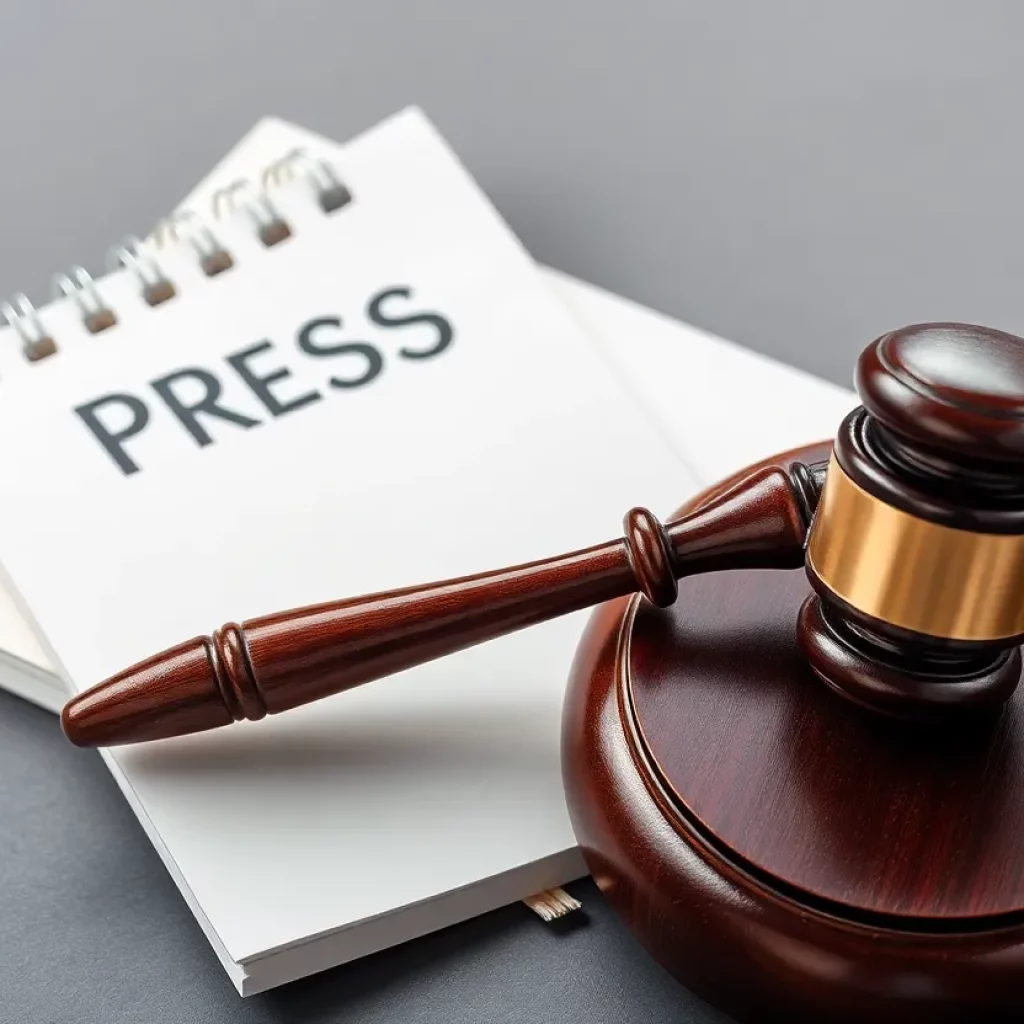News Summary
In a significant policy change, the Justice Department has revoked protections for journalists that were in place during the Biden administration, allowing for the seizure of their phone records in leak investigations. Attorney General Pam Bondi’s memo indicates a shift towards renewed scrutiny of the press, raising concerns about press freedom and the confidentiality of journalistic sources. The new guidelines will require higher-level approval for investigative measures against journalists, but also revive intrusive practices that many advocates fear could threaten the role of the media in holding the government accountable.
Justice Department Rescinds Protections for Journalists: A New Era of Scrutiny
The Return of Intrusive Investigative Practices
In a significant policy shift, the Justice Department has announced the rescinding of protections established during the Biden administration that shielded journalists from having their phone records secretly seized in leak investigations. This decision marks a stark reversal and a return to pre-2021 practices, igniting concerns among press freedom advocates regarding the implications for journalistic integrity and confidentiality.
Attorney General Pam Bondi’s Memo: A New Directive
Attorney General Pam Bondi’s recent memo indicates a clear intent: federal authorities may once again pursue reporters’ phone records and compel their testimony in investigations concerning leaks. The memo cites the previous administration’s policies as overly permissive, stating that they granted media outlets excessive protection which, in her view, allowed for selective leaking that could undermine governmental operations.
Under the newly established guidelines, news organizations must now comply with subpoenas that are authorized at the appropriate levels within the Justice Department. This escalation in oversight allows prosecutors to wield court orders and search warrants against news media in order to demand information and testimony, raising alarms about the potential erosion of press freedoms.
Renewed Focus on Investigating Leaks
Bondi’s memo underscores a reinvigorated commitment to probing and prosecuting government officials who leak sensitive information to the media. The document posits that safeguarding classified and sensitive information is crucial for effective governance and the efficacy of law enforcement.
The memo outlines that before any intrusive tactics are employed against journalists, the Attorney General must ascertain whether there exists a reasonable basis for the belief that criminal activity has transpired. This stipulation shades into a cautious approach, aiming to limit the use of investigative measures against the media to absolute last-resort scenarios.
Procedural Shielding for Journalists
In a nod to the sensitive nature of journalistic work, the new policies afford some procedural protections. High-level approval within the Justice Department is now required before any court orders can be sought against journalists. Additionally, journalists are generally entitled to advance notice regarding any investigative activities centered on their work, which could serve as a counterbalance to the aggressive tactics directed at other sectors of society.
This pivot in policy is timely, coinciding with a backdrop of heightened grievances regarding media leaks by former President Trump, coupled with ongoing tensions between the administration and the press. The implications of this policy change extend beyond mere process, hinting at a political dimension in the enforcement of these directives.
The Political Context of the Policy Shift
Tensions surrounding media leaks have long persisted, with historical precedence showcasing the Justice Department’s past practices, which included the pursuit of internal communications from major news outlets and implementing gag orders against journalists. Bondi’s memo calls attention to specific individuals who found themselves in the crosshairs during the former administration, suggesting a politically charged angle that favors particular narratives while sidelining others.
While the previous protections for journalists were heralded as an advancement for press freedom, the current memo from Bondi indicates a striking imbalance in prioritizing national security and law enforcement over the rights of the press. Critics decry this shift as a potential threat to journalistic practices and the essential role of the media in holding the government accountable.
Press Freedom at a Crossroads
The ramifications of this policy change extend deeply into the realm of press freedom, with many observers expressing trepidation over the potential for investigators to have broader access to journalists’ records. The balance between protecting national security interests and safeguarding the fundamental rights of the press becomes increasingly delicate under these new regulations.
As the Justice Department embarks on this renewed course, the implications for the role of journalism in a democratic society could be profound. The delicate interplay of interests here may well dictate the future landscape of press freedom and government accountability.
Deeper Dive: News & Info About This Topic
HERE Resources
U.S. Lawyer Raises Concerns Over Medical Journals’ Integrity
Lawyer Responds to Columbia Student’s Arrest Amid Activism Concerns
Democratic Lawmakers Visit Detained Students Amid Tensions
South Carolina Colleges Face DEI Program Cuts
Lawyer Raises Concerns Over CHEST Journal’s Editorial Independence
Columbia, South Carolina Enacts Controversial DEI Legislation
Judicial Independence at Risk: The Role of Lawyers in Personal Injury Cases
Tom DeVore’s Legal Troubles: Potential Suspension Looms
Dr. Edward Simmer’s Nomination Faces Opposition in South Carolina
Dr. Kevin Hall Resigns from NIH Amid Censorship Issues
Additional Resources
- Politico: Trump Administration Advertisement
- Wikipedia: Freedom of the Press
- AP News: Trump Administration Rescinds Protections for Journalists
- Encyclopedia Britannica: Press Freedom
- New York Times: Renewed Focus on Investigating Leaks
Author: STAFF HERE CHARLESTON
The CHARLESTON STAFF WRITER represents the experienced team at HEREcharleston.com, your go-to source for actionable local news and information in Charleston, Charleston County, and beyond. Specializing in "news you can use," we cover essential topics like product reviews for personal and business needs, local business directories, politics, real estate trends, neighborhood insights, and state news affecting the area—with deep expertise drawn from years of dedicated reporting and strong community input, including local press releases and business updates. We deliver top reporting on high-value events such as the Spoleto Festival USA, Charleston Wine + Food Festival, and the MOJA Festival. Our coverage extends to key organizations like the Charleston Metro Chamber of Commerce and the Charleston Museum, plus leading businesses in tourism and maritime industries that power the local economy such as South Carolina Ports Authority and the Charleston Visitor Center. As part of the broader HERE network, including HEREaiken.com, HEREbeaufort.com, HEREchapin.com, HEREcharleston.com, HEREclinton.com, HEREcolumbia.com, HEREgeorgetown.com, HEREgreenwood.com, HEREgreenville.com, HEREhiltonhead.com, HEREirmo.com, HEREmyrtlebeach.com, HEREnewberry.com, HERErockhill.com, HEREspartanburg.com, HEREaustin.com, HEREcollegestation.com, HEREdallas.com, HEREhouston.com, and HEREsanantonio.com, we provide comprehensive, credible insights into South Carolina's dynamic landscape.










